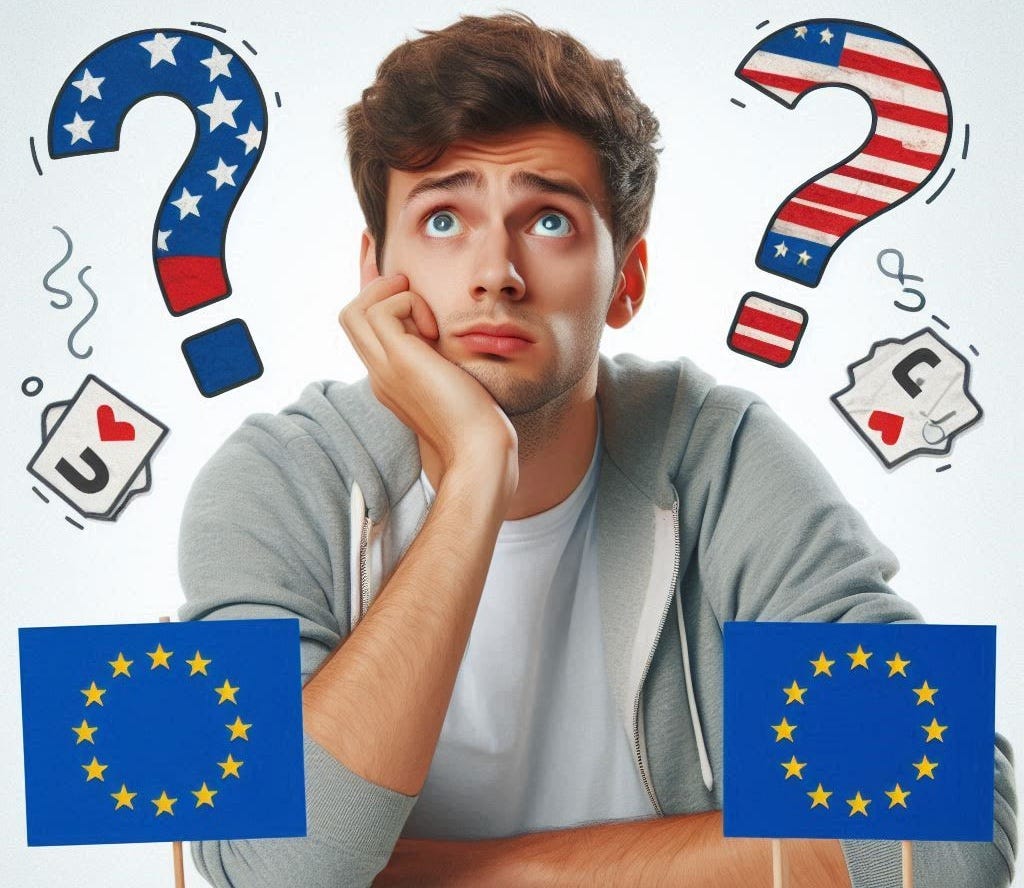The EU election for dummies
A guide to how the world's second-largest election works, and why it's important.
This week, 317 million voters across Europe are eligible to vote in the EU election, which selects members of the European Parliament every five years. It’s the second-largest democratic election in the world, after India’s which is concluding right now (970 eligible voters). That compares to the 240 million eligible voters in US elections.
If you’re confused about what this election is and what it actually determines, I’ve got you covered. Here’s a Q&A guide with everything you need to know. Feel free to send this along to your friends and family who are on the fence about whether they will bother voting.
When is the election?
Most EU citizens will be voting on Sunday 9 June, since Sunday is the traditional voting day in most European countries. However, a few countries traditionally vote on other days. The Netherlands votes first, on 6 June. Ireland votes on 7 June. Malta, Latvia, Czechia and Slovakia vote on Saturday 8 June. Italy votes on Saturday and Sunday. All the rest will vote on Sunday. Polling times vary, they close at the earliest in Belgium (4pm) and at the latest in Italy (11pm).


